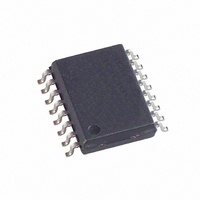EPCS16SI16N Altera, EPCS16SI16N Datasheet - Page 26

EPCS16SI16N
Manufacturer Part Number
EPCS16SI16N
Description
IC CONFIG DEVICE 16MBIT 16-SOIC
Manufacturer
Altera
Series
EPCSr
Specifications of EPCS16SI16N
Programmable Type
In System Programmable
Memory Size
16Mb
Voltage - Supply
3 V ~ 3.6 V
Operating Temperature
-40°C ~ 85°C
Package / Case
16-SOIC (0.300", 7.50mm Width)
Memory Type
Flash
Clock Frequency
20MHz
Supply Voltage Range
2.7V To 3.6V
Memory Case Style
SOIC
No. Of Pins
16
Operating Temperature Range
-40°C To +85°C
Rohs Compliant
Yes
Lead Free Status / RoHS Status
Lead free / RoHS Compliant
Other names
544-1240-5
EPCS16SI16
EPCS16SI16
Available stocks
Company
Part Number
Manufacturer
Quantity
Price
Company:
Part Number:
EPCS16SI16N
Manufacturer:
ALTERA
Quantity:
1 250
Company:
Part Number:
EPCS16SI16N
Manufacturer:
ALTERA44
Quantity:
540
Part Number:
EPCS16SI16N
Manufacturer:
ALTERA/阿尔特拉
Quantity:
20 000
3–26
Power and Operation
Power Mode
Power-On Reset
Error Detection
Configuration Handbook (Complete Two-Volume Set)
f
This section describes the power modes, power-on reset (POR) delay, error detection,
and initial programming state of serial configuration devices.
Serial configuration devices support active power and standby power modes. When
nCS is low, the device is enabled and is in active power mode. The FPGA is
configured while in active power mode. When nCS is high, the device is disabled but
could remain in active power mode until all internal cycles have completed (such as
write or erase operations). The serial configuration device then goes into stand-by
power mode. The I
in active power mode and the I
in stand-by power mode (refer to
During initial power-up, a POR delay occurs to ensure the system voltage levels have
stabilized. During AS configuration, the FPGA controls the configuration and has a
longer POR delay than the serial configuration device.
For the POR delay time, refer to the configuration chapter in the appropriate device
handbook.
During AS configuration with the serial configuration device, the FPGA monitors the
configuration status through the nSTATUS and CONF_DONE pins. If an error condition
occurs (nSTATUS drives low) or if the CONF_DONE pin does not go high, the FPGA
will begin reconfiguration by pulsing the nSTATUS and nCSO signals, which controls
the chip select pin on the serial configuration device (nCS).
After an error, configuration automatically restarts if the Auto-Restart Upon Frame
Error option is turned on in the Quartus
system must monitor the nSTATUS signal for errors and then pulse the nCONFIG
signal low to restart configuration.
Chapter 3: Serial Configuration Devices (EPCS1, EPCS4, EPCS16, EPCS64, and EPCS128) Data Sheet
CC1
parameter specifies the V
CC0
Table
parameter specifies the current when the device is
3–21).
®
II software. If the option is turned off, the
CC
supply current when the device is
© December 2009
Power and Operation
Altera Corporation
















